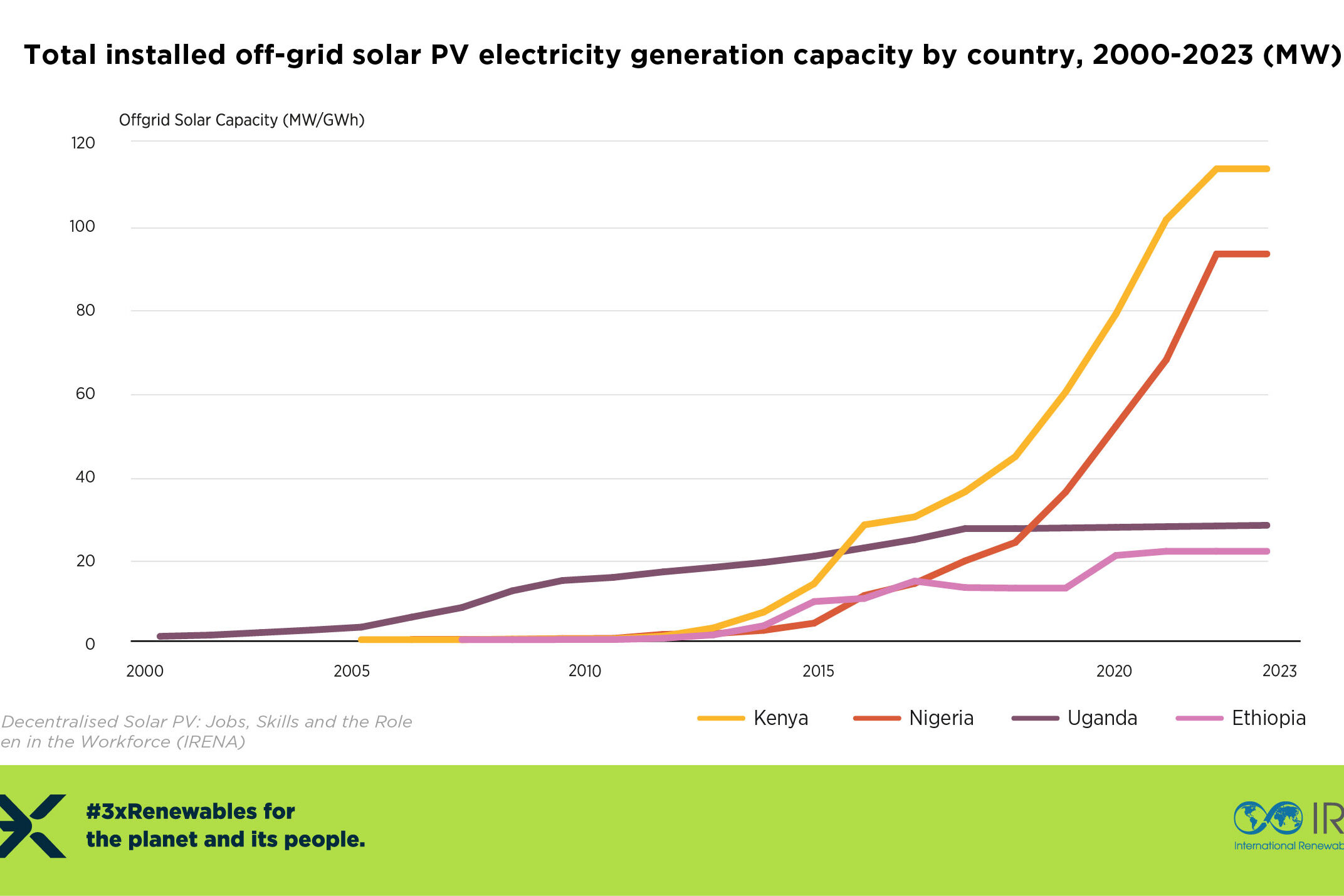Women shine bright: 41% of solar industry jobs in Kenya now held by women

Women take up an estimated 41% of off-grid solar jobs in Kenya, but challenges remain on the path of women that are looking to secure jobs in the field.
This is the findings of a new study by the International Renewable Energy Agency (IRENA) on the impact of gender in the decentralized solar PV industry.
The report, titled A Gender Perspective, focused on 5 countries namely Ethiopia, India, Kenya, Nigeria and Uganda.
The report comes at a time when the number of people without access to electricity rose by 10 million in 2022, reaching 685 million, with the majority of the unelectrified population residing in sub-Saharan Africa.
Decentralised renewable energy (DRE) is critical for providing clean, reliable, and affordable energy (Sustainable Development Goal 7 [SDG 7]) to remote and hard-to-electrify communities.
According to IRENA, decentralised solar photovoltaic (PV) energy, in particular, presents a viable solution to this problem due to its scalability, adaptability to local conditions and ability to operate independently of a centralised grid infrastructure
According to IRENA’s solar PV gender survey, women comprise 38% of the workforce across all positions in Africa’s solar PV sector.
This regional average aligns closely with national estimates in this report’s focus countries, where the decentralised solar PV sector employs 41% of women in Kenya, 37% in Ethiopia, 35% in Nigeria and 28% in Uganda.
irena
This means that men still dominate the off-grid solar PV jobs in Kenya with a share of 59%.
The report revealed a myriad of challenges that women still face in the sector, which is making it harder for them to compete with their male counterparts for solar jobs.
In Kenya, women interviewed for the study reported that some companies resorted to discussing job safety and suitability for women with their husbands and fathers.
Kenyan women interviewed for the study also highlighted that almost always, interview panels for jobs in the DRE sector are staffed primarily or exclusively by men, which leads the female candidates to underperform or feel uncomfortable.
Moreover, a lack of women already working in the sector often means teaching, training and recruiting is done overwhelmingly by men, with training often given to groups dominated by men, further dissuading many women from pursuing careers in DRE.
In Kenya, it was highlighted that customers always direct questions to men, even in a situation where the woman is the engineer of the team
This lack of mobility is also an issue in Kenya, where it is rare to find women who ride motorbikes, therefore limiting their ability to perform roles in sales or any role that requires travel.
Further, interviews conducted in Kenya as part of a focus group for the study highlighted that many women preferred informal to formal jobs owing to more flexible schedules that allowed them more freedom to reconcile family duties as well as, in some regions, seasonal work at the family farm.
This, in turn, affects their ability to accept formal jobs in the DRE sector that involve more rigid schedules.
This finding reflects economy-wide barriers across countries and industries for women that are linked to inflexible working schedules, lack of parttime opportunities, required office attendance even for jobs that can be done from home, as well as routinised overtime hours, all of which make reconciling caring for a family while working full-time more difficult.
irena
info@theenergyreview.com
Discover more from THE ENERGY REVIEW
Subscribe to get the latest posts sent to your email.


